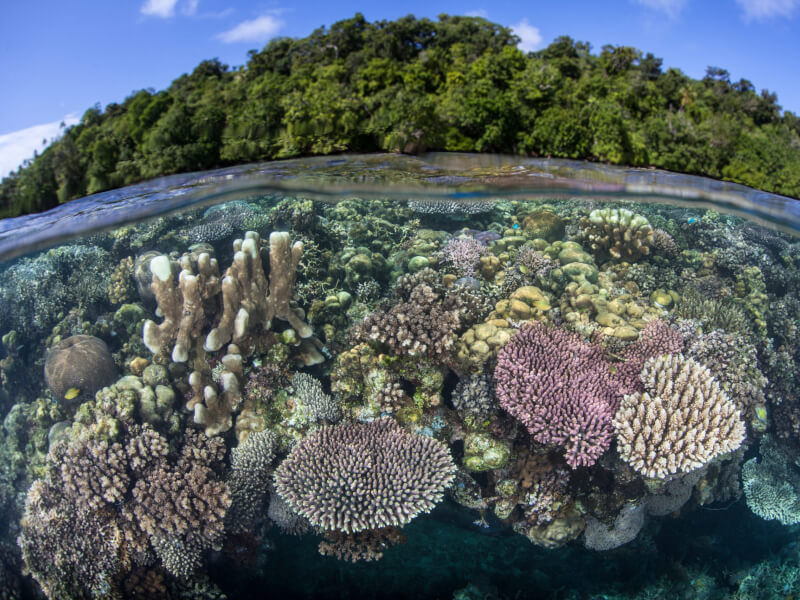31 October 2021 – To successfully emerge from Covid into a fairer, greener future we need to recognise nature as an essential piece of the puzzle.
Nearly two years after the first reported case of Covid-19, the world is still facing the repercussions. At the same time, the extent of our planetary emergency – of climate crisis, biodiversity loss and inequality – has become evident. As we rebuild our societies and economies, we are faced with a unique opportunity to build a nature-positive future that we must not let slip away. It is time for all of us to chart a planetary response to our planetary crisis – a response that puts nature at the centre.
Our shared global experience with Covid-19 has underlined the interconnectedness of our different systems. The science is clear: climate, biodiversity and human health are fully interdependent. Yet, within discussions around post-Covid recovery, nature is not yet recognised enough as an essential piece in the puzzle of a resilient future for all.
A just, green and nature-positive recovery is a crucial first step towards emergence. It holds incredible potential – from the creation of 395 million jobs globally to delivering $10.1tn (£7.4tn) in economic value by 2030 – if anchored in long-term systemic transformation of our societies and economies. This is not to say that the path towards transformation is an easy one. However, inaction would be the worst option of all – we would not just miss out on $10tn in potential economic value but lose an additional $10tn or more globally over the next 30 years.
The Planetary Emergency Plan, published by the Club of Rome and the Potsdam Institute for Climate Impact Research, identifies key actions that support a paradigm shift from limiting the harm we do to the world through our day-to-day activities to a world where we enhance and restore the health of ecosystems. The plan calls on governments and sectors to adopt commitments to protect our global commons and develop national and sectoral roadmaps for regenerative land use and green, inclusive, circular societies.
In shifting towards regenerative models and reforming our food systems, for instance, we simultaneously tackle global health issues such as air pollution and malnutrition, regenerate our land, forests and waterways, enhance our ability to store carbon to reach net zero and reduce the risk of zoonotic diseases. Within the EU alone, health co-benefits are estimated to cover 84% of the costs of reducing greenhouse gas emissions (within a 1.5C scenario).
Global awareness of the critical role of nature is slowly building and we are seeing signs of significant progress. These past weeks, through the Nature for Life Hub, we have seen how different sectors are leading the way on key transformations – from Equator prizewinners redefining prosperity by creating new models of governance and rewiring economic norms by pricing carbon, to farmers pivoting to regenerative practices and biodiversity conservation. The Global Fund for Coral Reefs seeks to invest $500m in coral reef conservation and restoration over the next 10 years. An increasing number of global political leaders have committed to delivering a nature-positive world by 2030 through the Leaders’ Pledge for Nature.
While the momentum is heartening, it is important that we go beyond pledges and promises. In practice, investments on the ground still fall far short. According to new data from the Organisation for Economic Co-operation and Development (OECD), member countries and key partner economies have so far allocated $336bn to environmentally positive measures within their Covid-19 recovery packages. But this amounts to only 17% of the total sums so far allocated to Covid-19 economic recovery – decision-makers should carefully consider if this is really enough to build back better.
To successfully emerge into a sustainable future that lies within planetary boundaries, but also lifts a billion people out of poverty, the transition needs to be global – we all need to walk the path towards a nature-positive future together, in the same direction and with comparable speed. With the adoption of its biodiversity strategy under the European Green Deal framework, the EU strives to lead efforts to get nature on the political agenda and mobilise resources for biodiversity not just in the EU, but in partner countries. Recently, the EU has committed to doubling its external funding for biodiversity, particularly for the most vulnerable countries.
During the next eight months, global leaders will meet during three global Conferences of Parties (COPs) (the Convention on Biological Diversity, the United Nations Framework Convention on Climate Change and the United Nations Convention to Combat Desertification) and the Stockholm+50 conference. These events offer a chance for a global emergency response to our planetary crisis. Among others, finding agreement on the objective of protecting 30% of land and 30% of sea by 2030 will be crucial, and this should be one of the main aims for next year’s COP15 in Kunming, China.
We must all be part of the solution – to emerge from this emergency together. We simply cannot wait. It is time to act for a nature-positive future – today.
First published in The Guardian.






